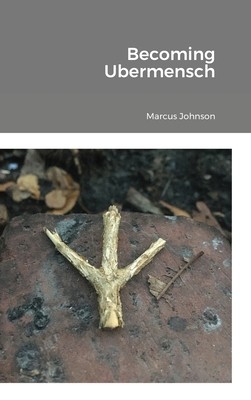
- We will send in 10–14 business days.
- Author: Marcus Johnson
- Publisher: Lulu.com
- ISBN-10: 1716144086
- ISBN-13: 9781716144080
- Format: 15.2 x 22.9 x 2.1 cm, kieti viršeliai
- Language: English
- SAVE -10% with code: EXTRA
Reviews
Description
In this sequel to Alapaha Paganism, Professor Johnson chronicles, examines, and responds, in his eclectic philosophical style, to the events of 2019-2021. Informed by the Stoic emperor, Marcus Aurelius, and the itinerant philosopher, Friedrich Nietzsche, this book of praxis uses aphorisms, essays, and an Arctic Circle travel journal to develop and express a contemporary life philosophy. Topics range from the origin and nature of the universe, to musings on the eating habits of the gulf fritillary caterpillar, to understanding the cultural war currently being waged against white people. This is not a popular book intended for a large audience. A few will find it thought provoking, and others will be offended. The title, Becoming Ubermensch, identifies the author's journey from dismay about the current state of affairs to a return to the familiar mantras of amor fati, sapere aude, and equanimity. Rather than be consumed by frustration caused by the actions of others, the author embraces a healthier philosophy: to live our short lives as nobly as possible in this world not of our making and largely beyond our control.
EXTRA 10 % discount with code: EXTRA
The promotion ends in 23d.00:25:05
The discount code is valid when purchasing from 10 €. Discounts do not stack.
- Author: Marcus Johnson
- Publisher: Lulu.com
- ISBN-10: 1716144086
- ISBN-13: 9781716144080
- Format: 15.2 x 22.9 x 2.1 cm, kieti viršeliai
- Language: English English
In this sequel to Alapaha Paganism, Professor Johnson chronicles, examines, and responds, in his eclectic philosophical style, to the events of 2019-2021. Informed by the Stoic emperor, Marcus Aurelius, and the itinerant philosopher, Friedrich Nietzsche, this book of praxis uses aphorisms, essays, and an Arctic Circle travel journal to develop and express a contemporary life philosophy. Topics range from the origin and nature of the universe, to musings on the eating habits of the gulf fritillary caterpillar, to understanding the cultural war currently being waged against white people. This is not a popular book intended for a large audience. A few will find it thought provoking, and others will be offended. The title, Becoming Ubermensch, identifies the author's journey from dismay about the current state of affairs to a return to the familiar mantras of amor fati, sapere aude, and equanimity. Rather than be consumed by frustration caused by the actions of others, the author embraces a healthier philosophy: to live our short lives as nobly as possible in this world not of our making and largely beyond our control.


Reviews